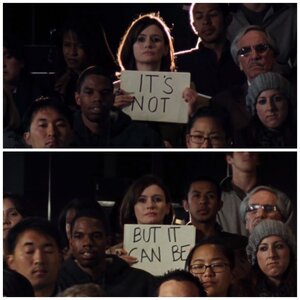1. If you're familiar with the old public intellectual journal Dissent, you might think of Jacobin as a 21st century, new media version. Dissent used to come out four times a year, and usually had one lead piece and then three or four 5-10 page essays (sometimes commenting on that story) plus other stuff. I think. It's been a long time. Anyway, Jacobin has shorter pieces (like everyone these days), and it comes out more frequently.
Dissent was not an academic journal, but most of its contributors were academics. That appears to be roughly true of Jacobin, but maybe less concentration of academics. I do think Dissent was a bigger deal in its heyday, which is more a comment about our media world in general than Jacobin in particular. Dissent would pull in bigger names and more prominent people, but again, comparing a quarterly print journal from the 80s to an on-line new media thing is unfair.
2. It seems to be that the author of this piece is conducting an ethnographic study, and if so, you're both right!
Ethnography is a well-respected, fully accepted mode of research with a very long pedigree in sociology and anthropology. Ethnography was how Levi Strauss got started, and Margaret Mead was an ethnographer. In the old days -- that is, until the mid 90s -- the researcher would embed him/herself in the community for a while (a year, two years, something like that), become friends with or at least friendly with the people in the area, and then the ethnographer writes observations. That might still be the method, but a) I haven't read an ethnography since the 90s so I don't know; and b) I have seen wisps of commentary over the years that suggested to me that the basic embedding idea was being reconsidered, but the key word there is wisps.
Anyway, ethnography is not supposed to stand on its own. Well, in the 1920s-1940s, it was; ethnographers would defend their disciplines from encroachment by the statistical analysts. Not a super hard defense to make in the 1920s, but in the 1950s, ethnography and statistical analysis began to be viewed as complements. Without statistics, ethnography isn't necessarily connected to the world; without ethnography, stats are sterile and miss rich detail. That's how I see them. I read a fantastic book about 25 years ago by an academic named Phillippe Bourgeouis, who lived in El Barrio for two years hanging out with drug dealers. I can't remember the title right now, but it was his book from the mid to late 90s and it shouldn't be hard to find.
There are research methods associated with ethnography. It's not just "hang out and then make things up." I can't speak to any of them as I never have been a sociologist or anthropologist.
3. Nothing about that piece strikes me as inherently suspect. The author surely recognizes that Hawaii is not the mainland (I believe she says that explicitly, though it scarcely needs to be said), but I don't think the patterns she identifies would be limited to Hawaii. It's not exactly ground-breaking to suggest that people's views of the world depend on how they get their information, but the argument here is a bit more subtle than that and anyway, we need scientific confirmation of intuitions lest some things we assume to be true turn out not to be.
It is worth mentioning that Duterte in Philippines was one of the first right-wing autocrats (along with his minions) to weaponize social media as mass disinformation. So it's possible the Filipino population was/is especially prone to misinformation. That said, Filipinos in America are often conservative. George Conway is Filipino. David Lat is Filipino (when I found out he worshipped Clarence Thomas, I was floored). There are a couple of Filipinos who right-wingers have put on the bench and they are conservative IIRC.





